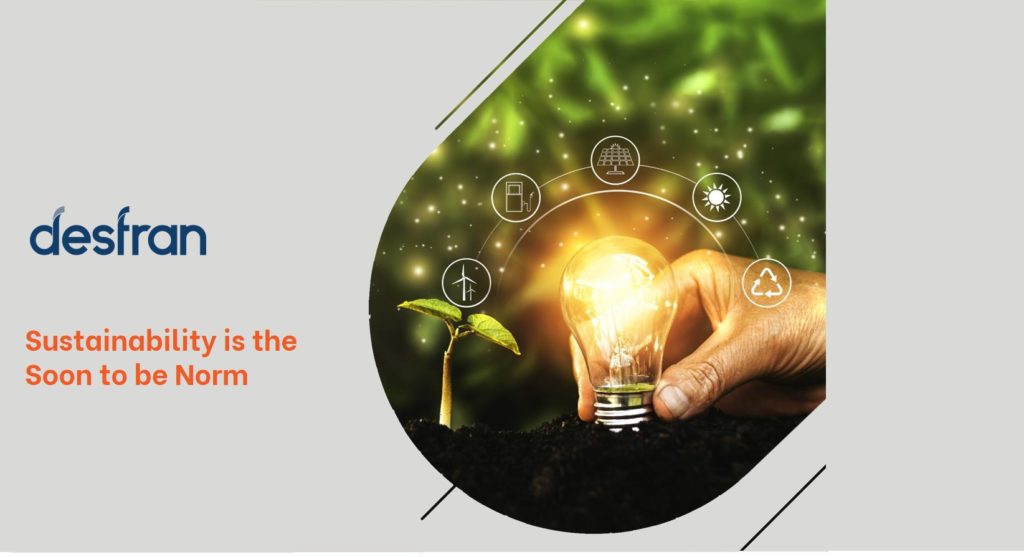In September 2020, the president of China, Xi Jinping pledged to achieve carbon neutrality before 2060. Concurrently, New Zealand became the first country to require financial industry to report on climate risk. Evidently, the sustainability trend is uprising and fast becoming the norm in countries around the world. A plethora of pull and push factors have also led to industries such as manufacturing that are known to be significant environmental impact contributors to re-engineer towards green manufacturing gradually. This production process produces lesser waste and overall pollution.
Pull Factors
By investing in green manufacturing practices, manufacturers can see the benefits they can reap in the longer term. Thus, more manufacturers are buying into the idea of reviewing their processes, revamping existing products line and developing new sustainable materials.
- Reduced Cost
Going green in manufacturing processes can allow businesses to achieve good cost savings. With the advancement in machines and equipment, the manufacturing tools are becoming much more energy-efficient and can have a lasting impact on a manufacturer’s bottom line. Much of the equipment found in shops or factories primarily consist of legacy equipment which could be holding a business back from reaching their green manufacturing goals. Over the long-term, the returns on investment into new, energy-efficient equipment could be evidently presented with a cut in the costs.
Beyond the manufacturing processes, manufacturers can also reduce their energy costs by using smart lights to only illuminate those required areas. Regular checks to ensure air hoses and compressors is appropriately sealed can result in a considerable reduction to a manufacturer’s overall energy consumption.
- Reduced Material Use
Heading onto the sustainability route would see manufacturers devising new plans, especially to ensure materials used can be reprocessed or ensure raw material retains existing or a lower cost. A plan commonly deployed by manufacturers is the reverse logistics strategy. By using the reverse logistics plan, many manufacturers have seen a reduction in the number of raw materials needed to produce new components or products. Reverse logistics is a process that ensures once a product reaches the end of its life-cycle, it will be returned to the manufacturer. They can breakdown those used products and secure the remaining raw materials. Using materials that would typically be thrown away can mitigate what the manufacturer needs to spend on raw materials to make new products.
A reverse logistics strategy benefits the manufacturer; it can significantly impact the amount of waste they produce. Instead of products ending up in landfills, manufacturers can ensure all the reusable materials will be used again. In the industrial sectors, steel is one of the most recyclable materials globally, and these manufacturers work on slim margins. Therefore, the more raw materials that can be recycled, the better chance manufacturers will have to profit.
- Reduce Carbon Footprint/Tax Credits
Focusing on green manufacturing and business practices will lead to a reduction in businesses’ carbon footprints. Carbon footprint management can make a difference in how a business is run and can have significant tax implications and even result in receiving incentives from the government. With more government encouragement for companies to switch to sustainable practices, manufacturers can even receive additional investment incentives into renewable energy infrastructures like wind turbines or rooftop solar panels. Thus, a manufacturer will produce their own energy and be reimbursed for extra power they put back into the grid (For instance, most United States states).
Push Factors
- Improved brand Image
It is not manufacturers that have been focusing on the importance of going green. Society has slowly adopted a green mindset to support sustainable initiatives and businesses. A manufacturer that is making a large investment in both time, energy and money to make sure their products are manufactured with the environment in mind can strike a chord with the public.
A manufacturer’s commitment to creating a green business can significantly improve their marketing effort. Going into the specifics of how a company is doing to ensure they reduce waste and energy consumption can make them much more attractive to buyers. Establishing as a champion of environmental responsibility can lift the perception of a manufacturing brand, which can play a vital role in your business’s success overall.
- Buyers’ Behaviour
A key finding from Toluna 2019 Sustainability Report highlighted that consumers are more likely to purchase specific items from environmentally friendly brands. Statistics of green purchasers include the following categories and percentages -cleaning products (42%), drinks (37%), pre-packaged food (35%), cosmetics and toiletries (34%), clothing (31%), and cars (29%). The data indicates a shift in a preference for goods from sustainable businesses and environmentally friendly goods. This reinforces manufacturers and businesses to rethink and increase their green commitments.
3 Simple Ways to Start Being Sustainable
- Analyse the current environmental impact and review the materials that can be recycled
For instance, recycling of waste papers that can be reused.
- Reduce waste whenever possible
Making full use of raw materials by collaborating with other manufacturers on excess parts of raw materials. - Leverage on renewable energy
There are plentiful renewable energy options, including sunlight, wind, rain, tides, waves, and geothermal heat. With the increasing adoption of solar energy and new technology, the cost of implementation has lowered significantly. It is an excellent alternative to go green and save cost for businesses in the long run.
Have a Good Green Idea?
New to the sustainable business landscape and require professional assistance for business formation and necessary licenses to operate? Desfran is an integrated business consultancy that specialises in company incorporation – from SMEs to MNCs and various business licenses. With more than a decade of business formation experience in different jurisdictions, our team of consultants are apt to ensure every step of the process is precise and well-planned.
Contact Desfran for Free Consultation.
